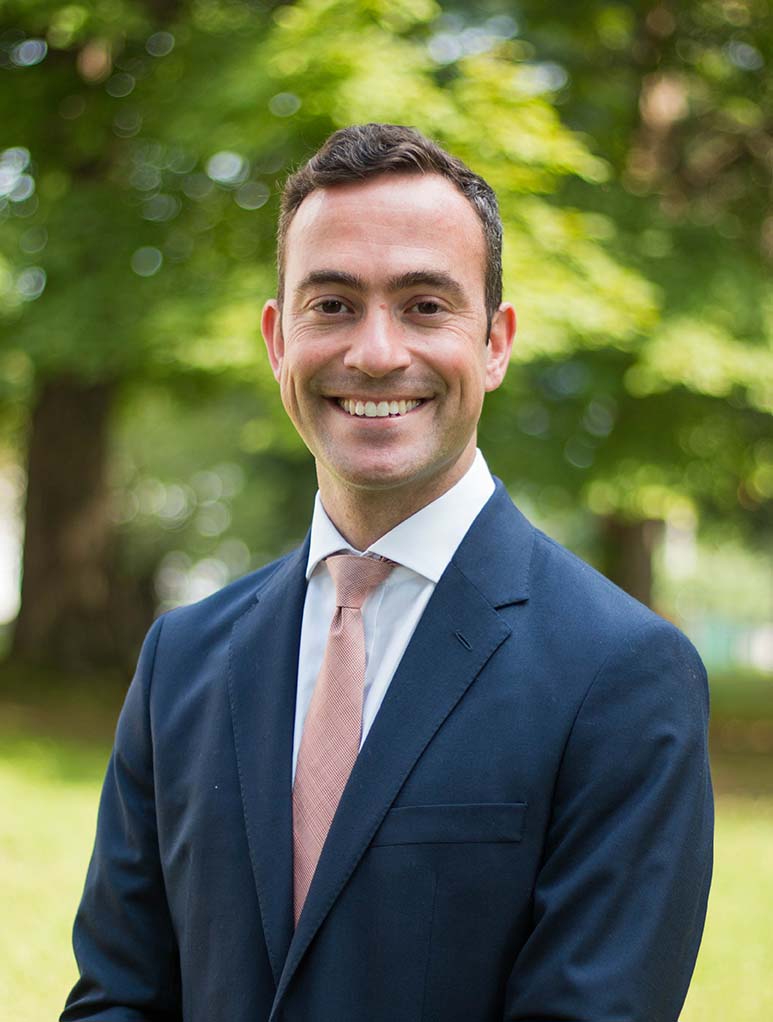Dyslexia, Dysgraphia, & Dyscalculia
Is your child struggling in school but intelligent and bright?
Does your child become frustrated with specific types of schoolwork or have difficulty meeting expectations?
Benefits of an academic neuropsychological evaluation
- Identify dyslexia, dysgraphia, dyscalculia in your child
- Receive documentation to help apply for testing accommodations
- Know when and where to seek specialized tutoring & coursework to maximize your child’s natural strengths
- Help reduce your child’s anxiety and/or fear about coursework


What an academic neuropsychological evaluation can help determine
Learning disabilities affect nearly 1 in 5 children in the US. Despite this, many children are not identified and are not given proper support throughout their education. Rather than poor motivation or a lack of proper training, an academic/learning disability is a brain-based disorder that can affect a child’s academic development.
A neuropsychological evaluation can help identify learning disabilities, such as:
- Dyslexia: A reading learning disorder that can include difficulties with reading comprehension, spelling, writing, or a combination of these.
- Dysgraphia: A writing learning disorder that can include inconsistent handwriting, spelling errors, difficulties with word choice, word spacing issues, or a combination of these.
- Dyscalculia: A math learning disorder that can include difficulties with telling time, mathematical computation, counting, pattern recognition, remembering and applying mathematical procedures, or a combination of these.
What an academic neuropsychological evaluation can help determine
Learning disabilities affect nearly 1 in 5 children in the US. Despite this, many children are not identified, meaning that they are not given proper support throughout their education. Rather than poor motivation or a lack of proper training, an academic/learning disability is a brain-based disorder that can affect a child’s academic development.
A neuropsychological evaluation can help identify learning disabilities, such as:
- Dyslexia: A reading learning disorder that can include difficulties with reading comprehension, spelling, writing, or a combination of these.
- Dysgraphia: A writing learning disorder that can include inconsistent handwriting, spelling errors, difficulties with word choice, word spacing issues, or a combination of these.
- Dyscalculia: A math learning disorder that can include difficulties with telling time, mathematical computation, counting, pattern recognition, remembering and applying mathematical procedures, or a combination of these.

How a neuropsychological evaluation for learning disabilities can help
A neuropsychological evaluation can identify if your child has an academic/learning disability. This is especially important since learning disabilities can be confused with many other childhood issues. Or, your child may have already been evaluated by their school district and may be receiving special education but the parents believe that it’s not what’s best. A proper diagnosis often requires a nuanced and individualized assessment of a child’s capabilities and skill set.
The diagnosis can be used to develop an educational plan for the child that may include specialized teaching, tutoring, or coaching to help them maximize their strengths and weaknesses. A diagnosis can also help your child seek testing accommodations for standardized tests such as the ACT or SAT.
An evaluation can also help identify if a child has an autism spectrum disorder»


What is assessed during the test
In a neuropsychological evaluation targeting learning difficulties, a child’s functioning is measured in a variety of areas based on the presenting problem, and the resulting neuropsychological pattern is examined to determine whether the diagnosis is appropriate. Some issue areas may include intelligence, memory, executive functioning, auditory processing, and academic skills among others.
Request a Free Consultation
Even though children with dyslexia, dysgraphia, or dyscalculia are just as smart and hardworking as other students, they are sometimes mistakenly seen as “lazy” or “unintelligent”. This can lead to years of frustration with school, anxiety about certain subject material, and difficulty maintaining grades. A neuropsychological evaluation with our neuropsychologists can help you identify any academic/learning disability your child may have and develop the best learning plan for your child’s success.
Differentiated Evaluations
As children develop from infancy through early adulthood, the skills they need to succeed change as well. Using this developmental framework, our neuropsychologists offer 4 types of neuropsych evaluations which are uniquely designed for each stage from childhood to adulthood:
Each type of evaluation shares a core assessment of common neuropsychological abilities, but the specific measures, goals, and recommendations generated from the various evaluations target the individual’s needs at their developmental level.
Flexible Evaluations in Your Child’s Environment
To better meet the needs of the child, our neuropsychologists have incorporated a flexible evaluation approach which allows for children to be evaluated outside of our offices, whether at home or in school. This allows for a comprehensive assessment of both the child and their environment, and enables in-vivo consultation with school or home personnel that are influential in the child’s life.
At Home
At School
Evaluation Options & Pricing
Although we do not accept insurance, some clients with out-of-network benefits are able to secure reimbursement for services.
School Readiness Evaluation
- Basic intelligence assessment
- Basic academic assessment in reading, spelling, and math
- 2-4 hours of testing
- Summary report
Academic Testing
- Comprehensive assessment of reading, writing, and math abilities
- 2-4 hours of testing
- Summary report
Targeted Neuropsych Evaluation for Dyslexia, Dysgraphia, or Dyscalculia
- 20-30 minute interview
- Intellectual functioning, memory, executive functioning and academic functioning
- Targets dyslexia, dysgraphia, or dyscalculia
- Summary report and recommendations
- 1 day of testing (approx. 6 hours)
- 45-60 minute feedback
Comprehensive Neuropsych Evaluation
- 20-30 minute interview
- Areas covered: intellectual functioning, academic achievement, expressive and receptive language and communication skills, attention, concentration, learning, memory, executive functioning, visual spatial and visual perceptual functioning, motor ability, emotional and behavioral functioning, adaptive functioning
- 1-3 days of testing
- Full report and recommendations
- 60-120 minute feedback
About Dr. Ben Malkin, Psy.D.
Licensed Neuropsychologist in New York State
Dr. Ben Malkin, Psy.D. is a pediatric neuropsychologist working in the New York area who specializes in seeing children with a variety of neuropsychological and cognitive deficits as well as various medical issues.
After receiving his bachelors in psychology from Lander’s College, he pursued his doctorate in School Psychology at St. John’s University, and trained in Columbia University Medical Center and the Center for Applied Psychology during his internship year.
He completed a fellowship in Pediatric Neuropsychology in Memorial Sloan Kettering Cancer Center, where he conducted neuropsychological evaluations for childhood cancer patients and survivors, to help them reach their potential despite their challenges.
Dr. Malkin is originally from Los Angeles and currently lives in Woodmere, NY with his wife and three children.

Evaluation Details
- Domains assessed include sensory and motor abilities, attention and concentration, memory, language, visual-spatial ability, and “higher cognitive functioning”, such as reasoning, problem solving skills, intellectual functioning, and social and psychological functioning
- Appointments are with our neuropsychologists, who specialize in understanding the relationship of the brain to specific abilities and the objective evaluation of these abilities
- Testing is presented orally, visually, in writing, or in other formats where the client is asked to perform tasks that involve answering questions, drawing, or building objects.
- The evaluation length varies depending on the referral questions and evaluation type. They can be as short as 2 hours, and can also last over several days.
Request Consultation
(516) 331-1337
Neuro Psych Doctor Learning Disability Evaluation in New York City
Dr. Ben Malkin provides pediatric neuropsychological evaluations that assess a child’s cognitive profile – used to create a personalized treatment plan which optimizes the child’s development at home, school or other settings.
Hours: 8am-8pm, 7 days a week
More About Learning Disabilities
ADHD Hyperfocus: An Oxymoron?
ADHD and hyperfocus may sound contradictory, but they go hand-in-hand in some individuals.
23 January, 2021ADHD Myths: Facts And Fiction
Even though ADHD is a common condition, there are a lot of myths and misunderstandings surrounding it. Here, we debunk ten widespread misconceptions.
23 January, 2021ADHD Symptoms In Kids
ADHD symptoms vary depending on age group. Here, we break down the symptoms to watch for by age group.
13 January, 2021







